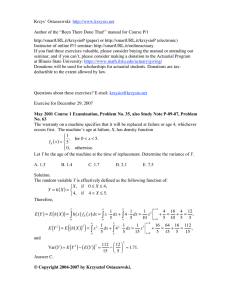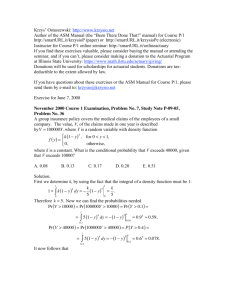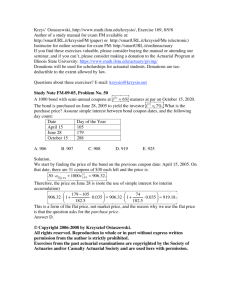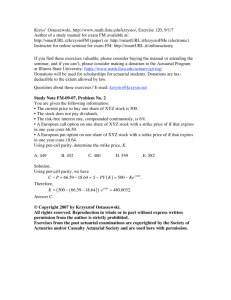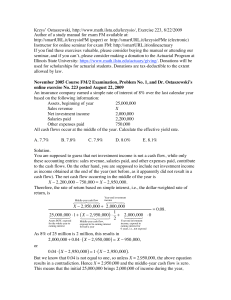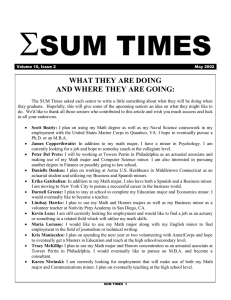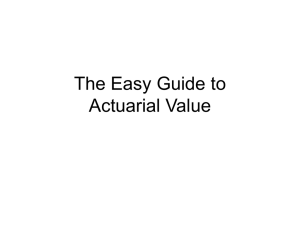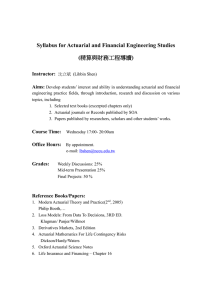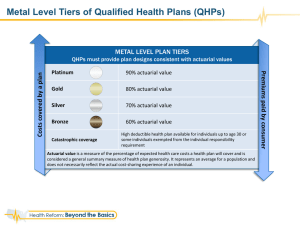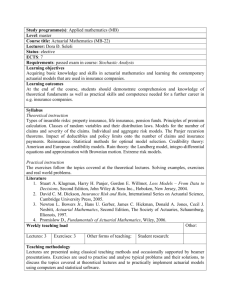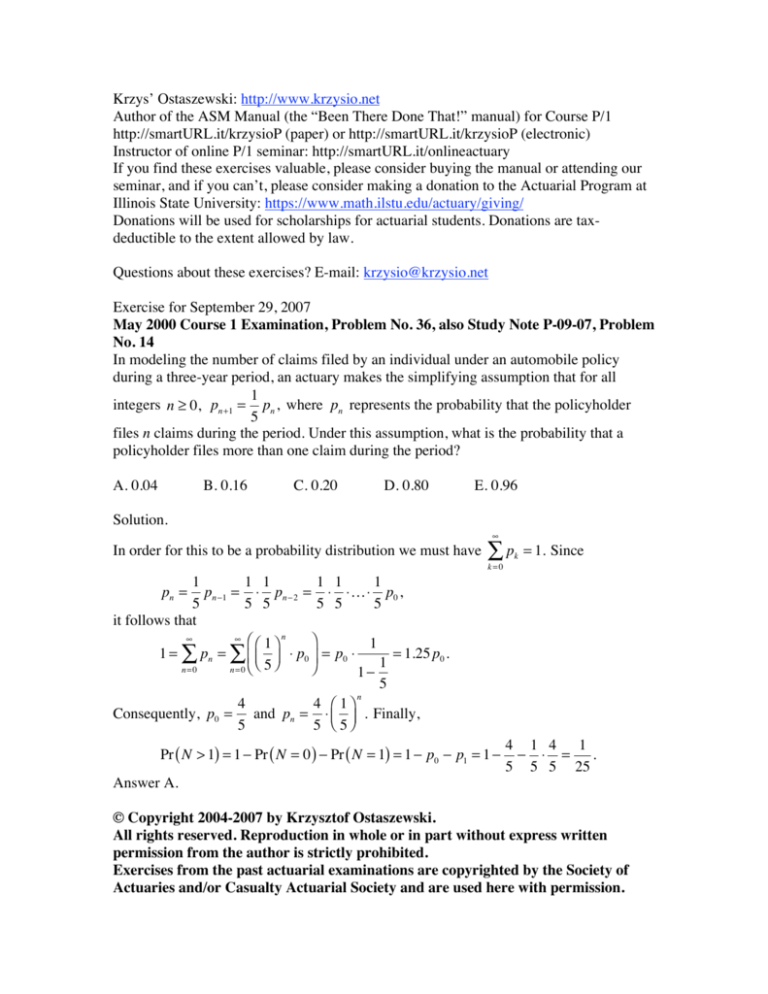
Krzys’ Ostaszewski: http://www.krzysio.net
Author of the ASM Manual (the “Been There Done That!” manual) for Course P/1
http://smartURL.it/krzysioP (paper) or http://smartURL.it/krzysioP (electronic)
Instructor of online P/1 seminar: http://smartURL.it/onlineactuary
If you find these exercises valuable, please consider buying the manual or attending our
seminar, and if you can’t, please consider making a donation to the Actuarial Program at
Illinois State University: https://www.math.ilstu.edu/actuary/giving/
Donations will be used for scholarships for actuarial students. Donations are taxdeductible to the extent allowed by law.
Questions about these exercises? E-mail: krzysio@krzysio.net
Exercise for September 29, 2007
May 2000 Course 1 Examination, Problem No. 36, also Study Note P-09-07, Problem
No. 14
In modeling the number of claims filed by an individual under an automobile policy
during a three-year period, an actuary makes the simplifying assumption that for all
1
integers n ≥ 0, pn +1 = pn , where pn represents the probability that the policyholder
5
files n claims during the period. Under this assumption, what is the probability that a
policyholder files more than one claim during the period?
A. 0.04
B. 0.16
C. 0.20
D. 0.80
E. 0.96
Solution.
∞
In order for this to be a probability distribution we must have
∑p
k=0
k
= 1. Since
1
1 1
1 1
1
pn −1 = ⋅ pn − 2 = ⋅ ⋅…⋅ p0 ,
5
5 5
5 5
5
it follows that
n
∞
∞ ⎛
⎞
1
⎛ 1⎞
1 = ∑ pn = ∑ ⎜ ⎜ ⎟ ⋅ p0 ⎟ = p0 ⋅
= 1.25 p0 .
1
⎝ ⎠
⎠
n=0
n=0 ⎝ 5
1−
5
n
4 ⎛ 1⎞
4
Consequently, p0 = and pn = ⋅ ⎜ ⎟ . Finally,
5 ⎝ 5⎠
5
pn =
Pr ( N > 1) = 1 − Pr ( N = 0 ) − Pr ( N = 1) = 1 − p0 − p1 = 1 −
4 1 4 1
− ⋅ =
.
5 5 5 25
Answer A.
© Copyright 2004-2007 by Krzysztof Ostaszewski.
All rights reserved. Reproduction in whole or in part without express written
permission from the author is strictly prohibited.
Exercises from the past actuarial examinations are copyrighted by the Society of
Actuaries and/or Casualty Actuarial Society and are used here with permission.

